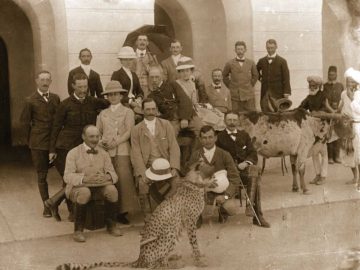Howard W. French in The Nation:
 In 2005, Britain’s then–Labour chancellor of the exchequer, Gordon Brown, chose the backdrop of Tanzania to make a dramatic statement about his nation’s unmatched record of imperial conquest and rule. “The time is long gone,” he said, “when Britain needs to apologize for its colonial history.” The choice of locale for such a proclamation was, to be charitable, curious. A braver stage would have been Kenya, to pick an African nation that had experienced horrific violence during its independence struggle from British colonial rule, or India or Malaya, where extreme and brutal measures to sustain imperial control had been carried out on an even greater scale. But here we were, nonetheless.
In 2005, Britain’s then–Labour chancellor of the exchequer, Gordon Brown, chose the backdrop of Tanzania to make a dramatic statement about his nation’s unmatched record of imperial conquest and rule. “The time is long gone,” he said, “when Britain needs to apologize for its colonial history.” The choice of locale for such a proclamation was, to be charitable, curious. A braver stage would have been Kenya, to pick an African nation that had experienced horrific violence during its independence struggle from British colonial rule, or India or Malaya, where extreme and brutal measures to sustain imperial control had been carried out on an even greater scale. But here we were, nonetheless.
Brown’s speech reflected the slow and creaky rotation of the wheel not so much of history but of historiography. Mirroring 19th-century historians’ and politicians’ polished encomiums to a beneficent British Empire, the speech brought elite assessments of Britain’s unparalleled dominion over one quarter of the globe, and over a similar fraction of the human population, almost full circle.
More here.
